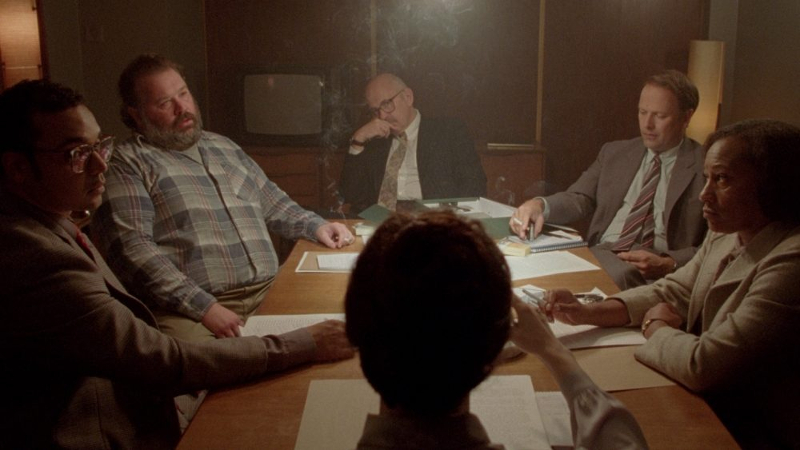Director – Lasse Hallström – 2022 – Sweden – Cert. 12a – 119m
****
Late in her life, Swedish artist Hilma af Klint, today considered the world’s first abstract painter, remembers her life – out in UK cinemas on Friday, October 28th
As Swedish artist Hilma af Klint (Lena Olin) takes a tram journey, she remembers key events and moments within it: she is haunted by the memory of her little sister Hermina (Emmi Tjernström), who tragically died when Hilma (Tora Hallström) was 18 and with whom she often played hide and seek.
Interested in drawing and painting from nature as a form of scientific inquiry – at her art school interview panel she lists mathematics, geometry, biology and astronomy as interests other than flowers – she meets up with other women studying technical painting and drawing in Stockholm, among them the wealthy Anna Cassel (Catherine Chalk) who becomes her lover and finances her as an artist – and becomes part of their group of five women artists interested in spiritism. She also studies the Theosophical writings of Madame Blavatsky and makes a particular connection to the Anthroposophist ideas of Rudolf Steiner.

Acknowledging these interests, the film infuriatingly refuses to explore them at any great depth, perhaps because it fears such ideas might prove controversial and perhaps because they might prove boring to a contemporary audience, it’s impossible to tell.… Read the rest

